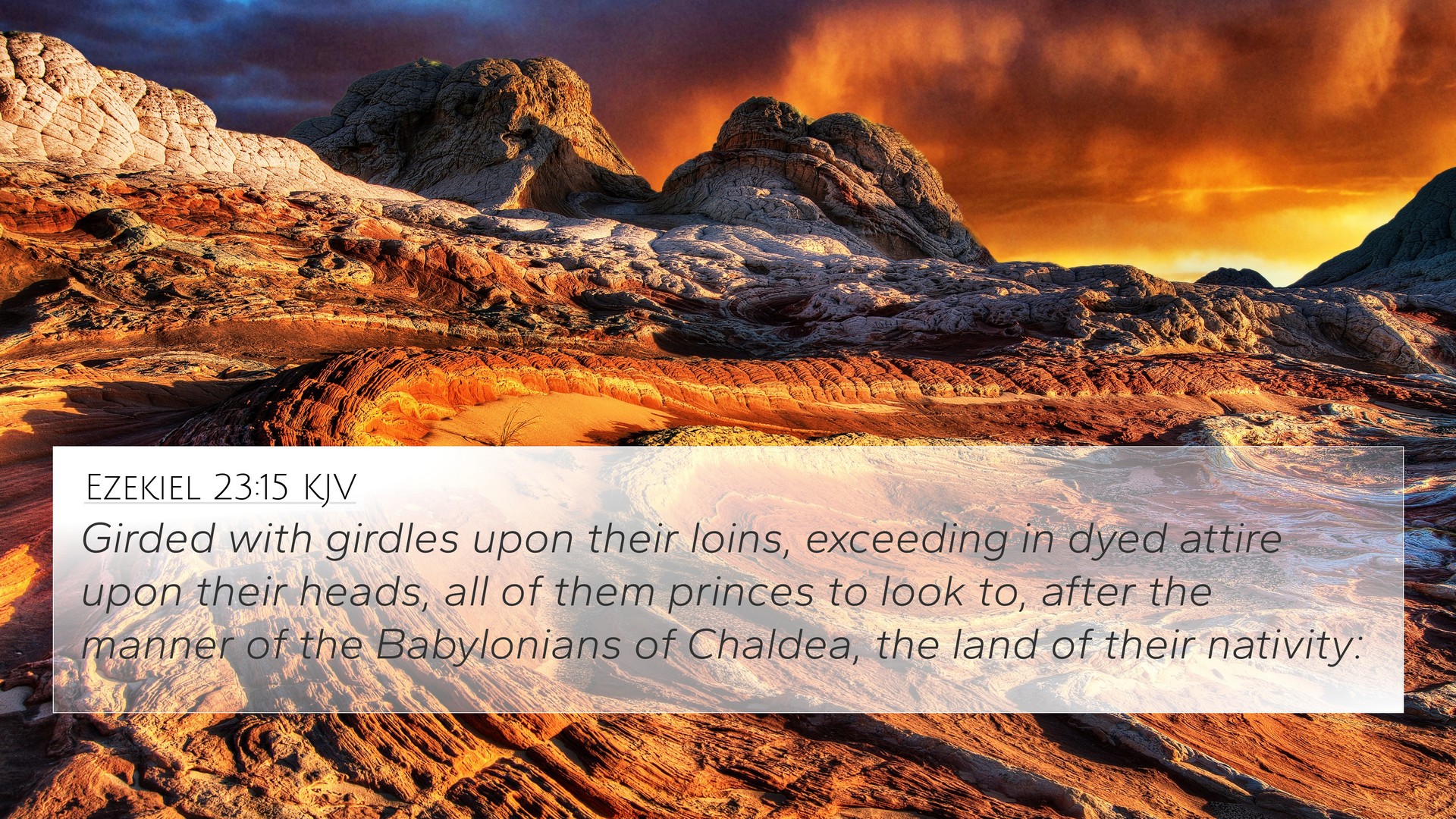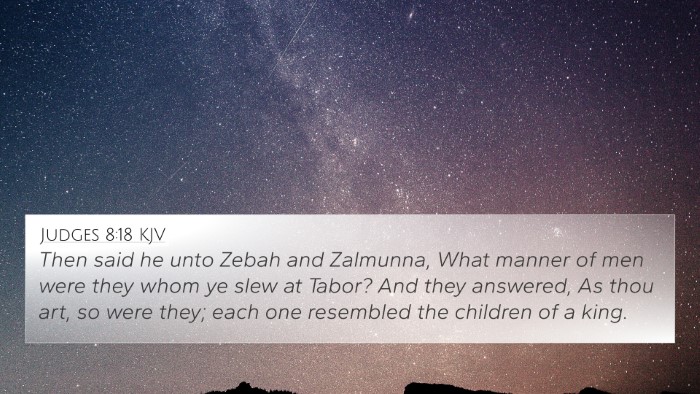Ezekiel 23:15 - Understanding the Verse
Ezekiel 23:15 reads, "Girded with girdles upon their loins, exceeding in dyed attire upon their heads, all of them princes to look to, after the manner of the Babylonians." This verse, part of Ezekiel’s vivid prophetic imagery, carries significant meanings about imagery, symbolism, and divine judgment.
Summary of Interpretations
The imagery in this verse illustrates the luxurious and ostentatious adornments of the Babylonian culture, signifying both allure and betrayal. Below is a synthesis of insights derived from various public domain commentaries.
-
Matthew Henry:
Henry emphasizes the stark contrast between Israel's **spiritual adultery** and God's covenant faithfulness. He interprets the attire as a symbol of **idolatry** and the seduction of foreign influences, which led Israel away from God.
-
Albert Barnes:
Barnes explains the ‘girded with girdles’ phrase as a symbol of readiness and preparation. He elaborates that this indicates the princes of Babylon are prepared for action, but also highlights the **deceptive beauty** that hides their malicious intentions towards Israel.
-
Adam Clarke:
Clarke interprets the verse through the lens of **historical context**, suggesting that such elaborate dress reflects a state of **pride** and **pomposity** prevalent in Babylonian culture. He warns of the danger posed by such **worldly attractions** to the spiritual integrity of Israel.
Thematic Connections
To understand this verse thoroughly, it helps to explore related scriptures that illustrate similar themes of **betrayal**, **judgment**, and **idolatry**:
- Isaiah 47:1-3: Describes the humiliation of Babylon, paralleling the judgment Ezekiel prophesies.
- Jeremiah 51:7: Discusses Babylon as a mystic **cup**, highlighting the allure of her **deception**.
- Revelation 17:4-5: Presents a vision of Babylon the Great as a harlot, capturing the same themes of seduction and moral corruption.
- Hosea 2:13: Speaks to Israel's infidelity and the consequences of seeking after foreign gods.
- Proverbs 6:25: Warns against the allure of an **adulterous woman**, drawing a metaphorical connection to idolatrous practices.
- Ezekiel 16:30: Uses similar language about idolatry, emphasizing the **physical and spiritual ramifications** of such actions.
- James 4:4: Draws a New Testament parallel, stating that friendship with the world is enmity with God, mirroring the themes of this verse.
Extensions of Meaning
The vivid imagery in Ezekiel 23:15 opens the door for deeper exploration into Biblical themes:
- It reinforces the concept of **divine judgment** against nations that lead God's people astray.
- It illustrates the **danger of worldly allure** and the risks linked to straying from spiritual fidelity.
- It invites readers to consider the consequences of **cultural assimilation** and its impact on faith.
Cross-Referencing Biblical Texts
Effective interpretation greatly benefits from **cross-referencing** additional passages. Here are some key tools and methods to explore these connections:
- Bible Concordance: Use a concordance to identify each occurrence of similar themes across scripture.
- Bible Cross-Reference Guide: Utilize guides that provide thematic links between verses.
- Cross-Referencing Bible Study Methods: Engage in studies that deliberately look for parallels in Old and New Testament writings.
User Intent: Exploring Connections and Relevance
For those searching for meaningful connections to this verse, consider these queries:
- What verses relate closely to Ezekiel 23:15?
- How do the themes in this verse connect with the New Testament teachings?
- What are the **similarities** between this verse and others discussing **idolatry**?
Conclusion
Ezekiel 23:15 serves as a stark reminder of the **perils of idolatry** and the profound consequences of turning away from God's covenant. The verse challenges believers to remain vigilant against the seductions of the world and to hold fast to their spiritual identities. By engaging in comparative Bible verse analysis and embracing the inter-Biblical dialogue, we can deepen our understanding of God’s Word and its relevance to our lives today.






